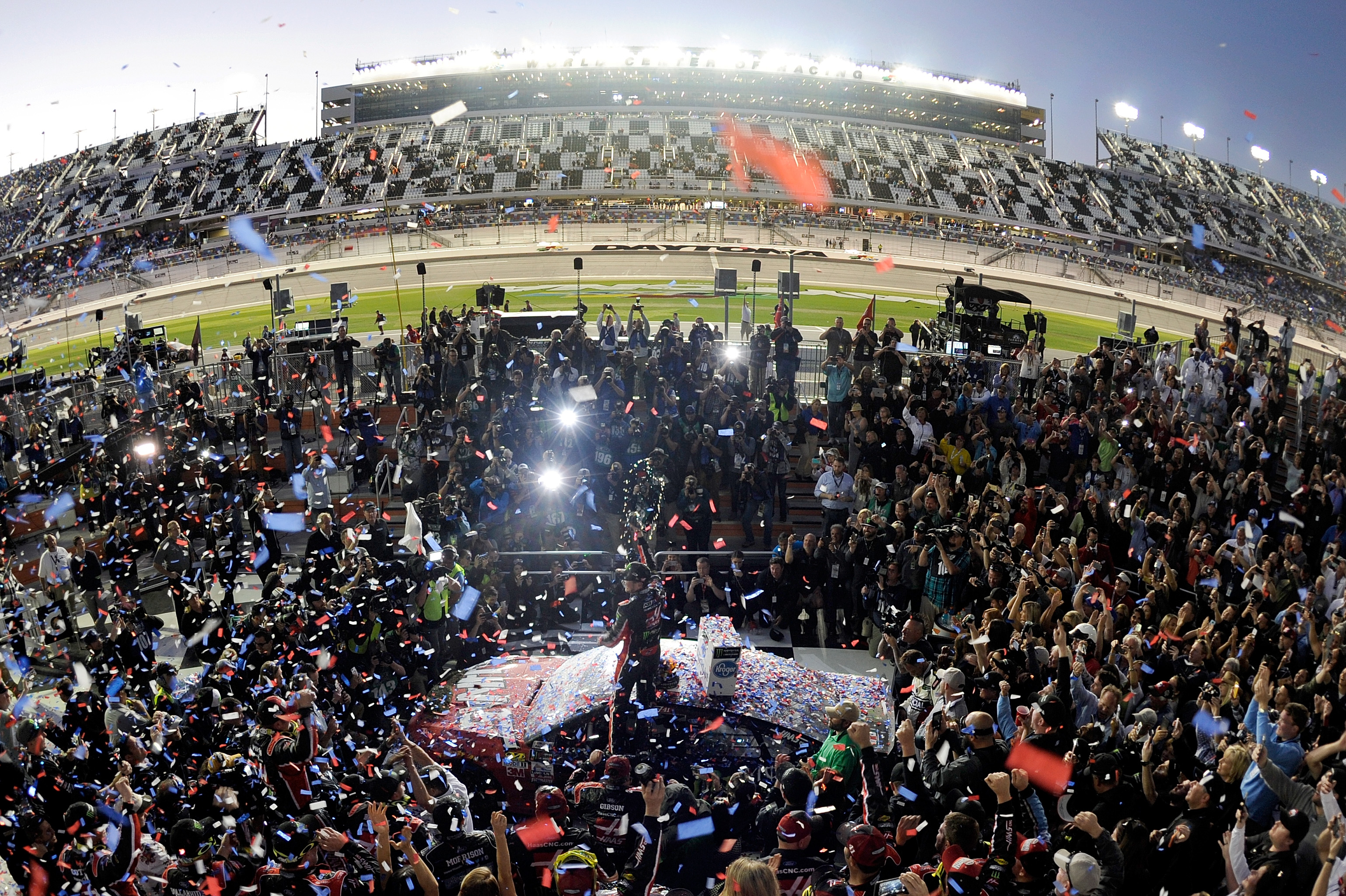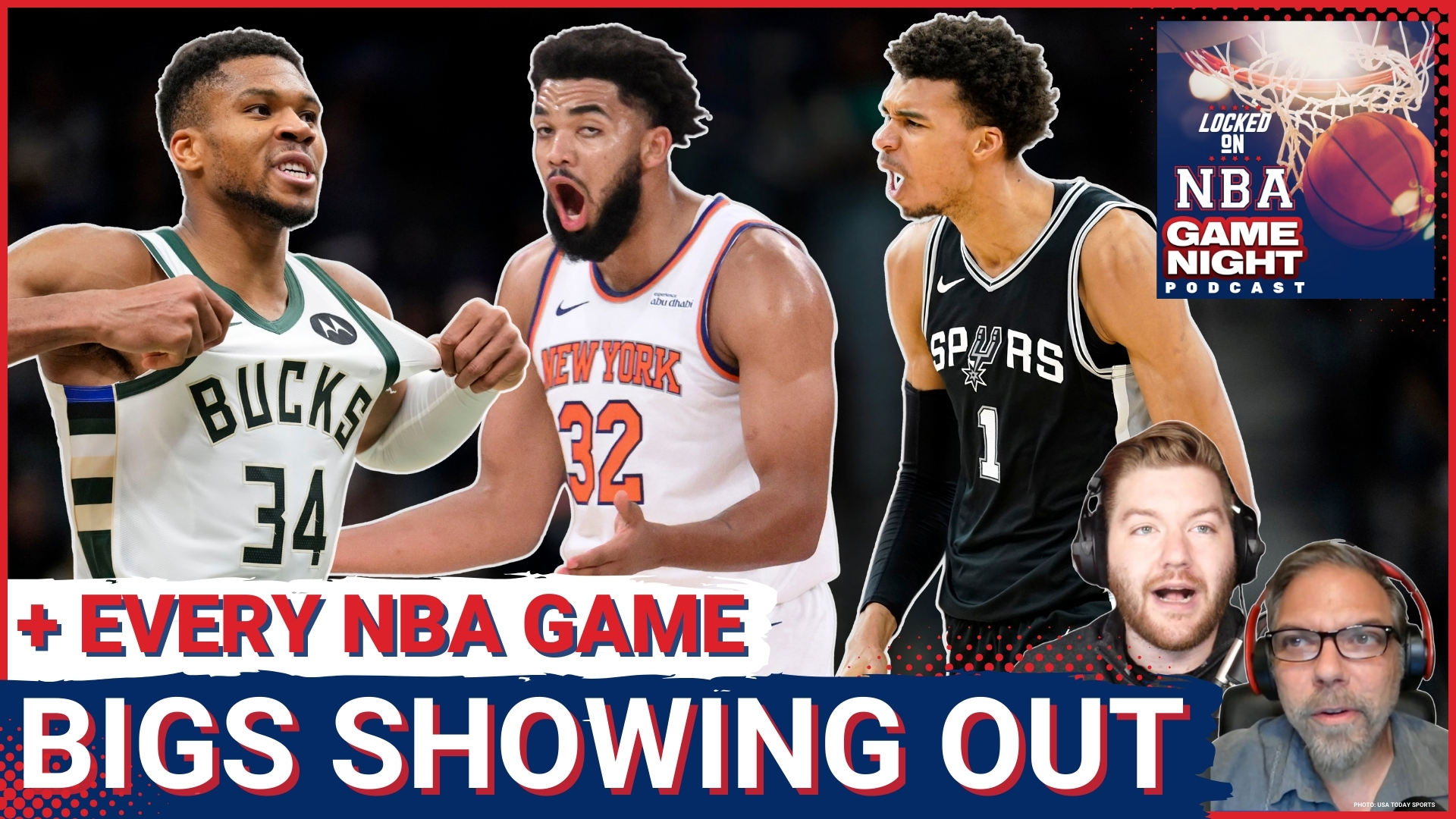DAYTONA BEACH, Fla. — This was what Kurt Busch craved, Tony Gibson deserved and Tony Stewart pursued for so long.
But it wasn’t what NASCAR needed, not on this day. It’s simply Busch’s misfortune that his win Sunday in the Daytona 500 will be parsed for anything other than being his greatest moment in a race car, Gibson’s as a crew chief or Stewart’s as an owner after failing to win NASCAR’s premier showcase in 17 tries as a driver.
But it’s true.
This Speedweeks had already been all about crossroads, improving ratings, finding a footing as an industry even before stakeholders locked figurative arms to show solidarity after a Wall Street Journal article that many felt besmirched the sport. Monster Energy’s entry as title sponsor was highly scrutinized, and a new points system was unveiled to stoke ratings and rejuvenate the sport’s prospects.
A glorious Sunday began strangely on a red carpet lined with dancing Monster Energy girls leading competitors to the drivers meeting where series Chairman Brian France admonished drivers not to block each other.
Then after 14 cars representing seven past Daytona 500 wins were eradicated in a series of sublime wrecks, Busch’s victory turned into a resolution that will leave many unfulfilled. And that has nothing to do with his often tempestuous past. It has everything to do with NASCAR dodging the potential calamity of an absurd race when it needed a showpiece.
.@KurtBusch wins the 2017 #DAYTONA500! Watch the final lap. #DaytonaDay @FOXTV https://t.co/D1UyyZfj04
— FOX SPORTS: NASCAR (@NASCARONFOX) February 26, 2017
Twenty-one-year-old pole-sitter Chase Elliott, son of Hall of Famer and two-time Daytona 500 winner Bill Elliott, led for 23 laps entering the final three circuits around the 2.5-mile racetrack. A win might have enticed desperately needed younger fans to patronize NASCAR. Or it might have done nothing.
It might have helped Atlanta Motor Speedway officials put more patrons into their generally highly available stands next weekend to cheer for a homegrown Georgia son. Maybe not.
But those enticing prospects sputtered away with the last wisps of fuel in Elliott’s No. 24 Chevrolet with two laps left.
Then Kyle Larson, 24, another driver on whom NASCAR has pinned a great deal of its hopes and prayers, took the lead but ran out of fuel with one lap left.
This strange day in which the comeback of Dale Earnhardt Jr. had been snuffed in a wreck, Corey LaJoie nearly plowed through Clint Bowyer when he appeared to lose brakes and otherwise professional race car drivers kept running into each other, might have been saved.
But it wasn’t.
Busch, Gibson and Stewart won it, and that’s all that matters. They should celebrate it.
The sport as a whole, though, might linger on what could have been.
Busch, whose career and personal life have been pocked by misadventure of his doing and otherwise — “some different patches here and there,” he said — was humble in finally winning at a place where he dutifully pushed then-Team Penske teammate Ryan Newman to a Daytona 500 win in 2008 but had been frustrated many times.
Gibson won at a track where his mother once worked in the ticket office when he was a kid growing up in Daytona Beach.
Stewart and co-owner Gene Haas won the 500 for the first time. They deserve to celebrate. So does Ford, which enticed SHR away from long-term relationships with Chevrolet and Hendrick Motorsports and was rewarded with a Daytona 500 win in their first race together. And his sponsor, Monster, will certainly be pleased, perhaps not for reasons it expected at the beginning of the day.
Busch said he didn’t realize at the time that Elliott had run out of fuel. He seemed let down by the information.
“The kid’s gonna be a superstar in this sport,” Busch said. “And circumstances were not in his favor today.”
For once, they were for Busch. But for the sport as a whole, likely not.
Follow James on Twitter @brantjames


